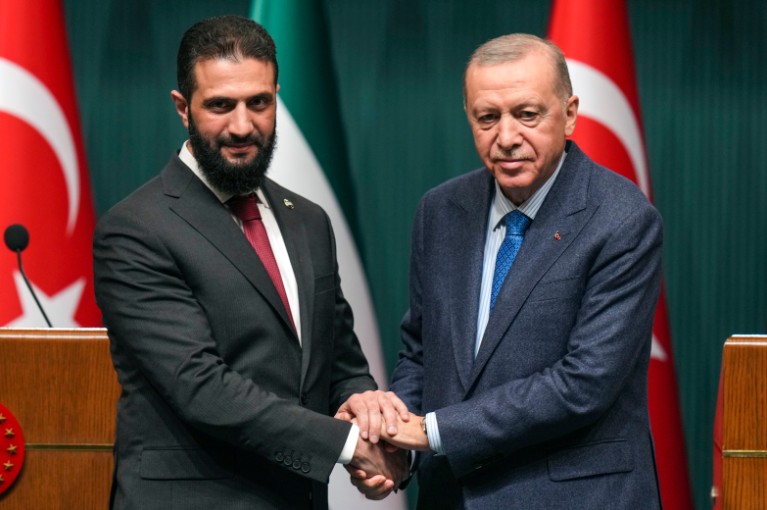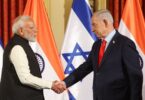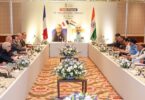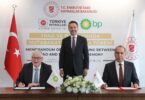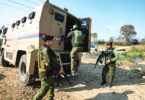Under the security agreement signed between Turkey and Syria in August 2025, Istanbul has begun to train Syrian forces.
According to various reports, over 300 Syrians soldiers and some police officers are being trained at two bases in central and eastern Turkey.
On basis of reports, Ankara plans to train about 5,000 recruits, with the expected number to increase up to 20,000.
Turkish security forces have started to withdraw from northern Aleppo, where they have been stationed for eight years as part of the Syria Task Force.
The joint collaboration had aided in securing areas seized from the Islamic State group and Kurdish fighters.
The task force, mostly consisting of gendarmerie units under the interior ministry, has started evacuating bases. According to reports, equipment and supplies from these areas are being moved to Turkey’s Hatay, Gaziantep and Kilis provinces. Bases in Syrian border towns such as Azaz and Jarablus have already been evacuated and handed over to security forces affiliated with the new Syrian administration. Personnel and military hardware withdrawn from Aleppo have been temporarily moved back to Turkey. Additionally, some in the Syrian government lacked information on the Turkish hand involved in training the Syrians.
In August 2025, the Turkish defence ministry said the bilateral agreement signed between Syria and Turkey would aid Damascus in military training and cooperation, including consultancy and equipment procurement.
The deal Is believed to be the first initiative towards reorganizing Syria’s defence forces, transferring expertise and supplying logistics in an effort to upgrade the Syrian military capabilities in response to internal and external threats.
In July 2025, Syria officially had requested Turkish military to assist after Israeli air strikes on Damascus and Sweida amid intercommunal violence between Druze and Bedouin tribes.
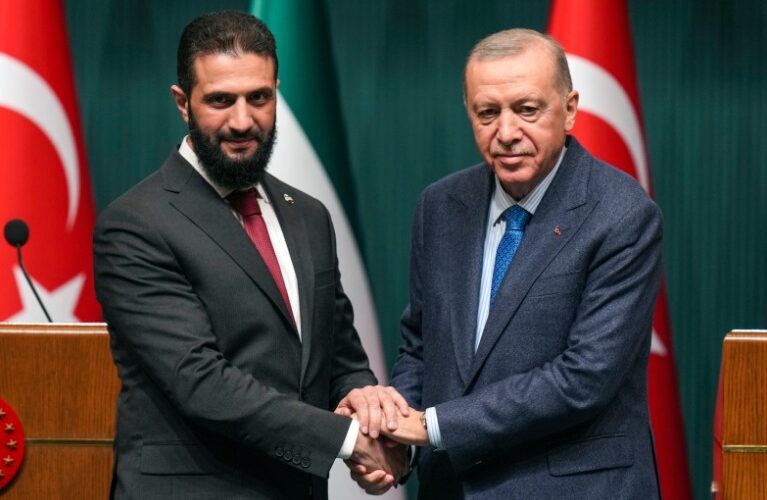
Ankara and Damascus have also been discussing an extensive defence pact, possibly involving Turkish troop deployments to minimum three major Syrian bases. It is possible that Turkey is determined to maximise its resources amidst its growing tensions with Israel and will utilize agencies like the Turkish Sadat to train and utilize recruits to its advantage while maintaining deniability. Israeli jets were reported to have struck targets in Latakia and Homs in Syria, including military ammunition depots and an air defence school. It was later reported the intention to strike the specified targets by Israel was a result of the presence warehouses storing Turkish-made missiles and air defence systems which were supposedly deployed to Homs.
There has been mixed reaction in regards to Turks being involved with Syria. “Turkey is trying to harass us and drag us into a military confrontation that we do not fear, but do not want,” stated one source, while additionally pointing out that Israel has been negotiating with Syrian leaders over security arrangements.
According to reports, Israel insists on demilitarising southern Syria and would strike any anticipated threat to its security.
It is expected that Turkey would continue to exercise its strategic advantage post the fall of the Assad regime with a meticulous foreign policy. This would entail some diplomatic mollification with limited military activity on the ground and some sort of invisible presence in political transition processes. In such cases it is possible for Ankara to deploy PMC’s and agencies like SADAT to seek its interest while maintaining its distance from the activities of these elements and maintain control of its directives indirectly.
Ankara is projecting its Syria policy along the lines of “regional ownership” , however, does not seem to be in rush into action with regards to the Kurdish People's Protection Units (YPG) but instead has supported the organisation’s efforts to seek common ground with Damascus.
However, Turkey may try to utilize YPG by supporting some agreement between the YPG and Damascus. Not only would it reinforce Turkey’s policy of disarming the Kurdistan Workers' Party (PKK), but also deter Israel’s attempts to exert influence over the Kurds.
The other option for Turkey would be to weaken the YPG through military force. This intervention, however, could have negative implications. It could hinder the disarmament process of the PKK within Turkey, deteriorate relations with the US, present Turkey as the aggressor, and reduce the support of Arab nations. It would also make the Damascus regime more susceptible to Israel. In such cases deniability with an indirect effective approach may be used by Ankara such as the use of SADAT etc or raising units with Turkish-Syrian collaboration to present legitimacy.
Turkey’s dual approach can be ascertained in its stance to show Syria’s territorial integrity while utilizing a strategy to block the YPG’s efforts for international legitimacy. After the YPG signed an agreement with Damascus, it could be interpreted as its means to evade the building military pressure from both Ankara and Syrian President Ahmed al-Sharaa's administration. Ankara’s appeasement policy is also employed on the front towards Israel’s stance in Syria. Israel’s efforts in Damascus are being met with Turkey using diplomatic negotiations and intelligence mechanisms to resist a direct military conflict.
After Israel destroyed the military capability of the new Syrian regime, and taking control over the Golan Heights, it carried out an air strike on Damascus to “protect” the Druze in the south.
With Turkey employing duplicity to expand its influence, Israel will be expected to create its on influence in southern Syria and exclude Turkey from the region. Developments centred on Sweida and policies pursued along sectarian fault lines also target the security infrastructure which Turkey seeks to achieve in Syria.
Syria has become a strategic battleground for Turkey and Israel. At this point, it seems Ankara may seek official and unofficial methods with the current Syrian regime to deter Israel’s influence in the region.
Turkey, as a result, is trying to strengthen the Damascus administration's military capacity. Tel Aviv has declared Turkey’s institutionalisation of military cooperation with Damascus, and the signing of agreements, as a “red line”.
Regardless, Israel is directly targeting Turkey’s military elements in Syria.
Israel’s policy in Syria may be to exert influence by using the Druze minority as a proxy in southern Syria. According to several experts, the YPG issue may be instrumental to Turkish and Israeli strategy.
YPG may depend on the possibility that Israel will target Damascus if the Sharaa administration or Turkey launches a military operation against it.
Turkey can be expected to push for stronger diplomacy with Arab countries, and either by integrating or neutralising the YPG before it becomes a threat.
More on the Turkey’s policies in the region and beyond.
The growth of the Arab-Islamic NATO: https://www.thestrategicperspective.org/arab-islamic-nato/
The Pakistan-Turkey strategic talks and cooperation were discussed here: https://www.thestrategicperspective.org/pakistan-turkey-strategic-talks/
Turkey’s extremely close ally, Azerbaijan, fortified their ties with Pakistan on a round of bilateral political consultations: https://www.thestrategicperspective.org/pakistan-and-azerbaijan-fortify-their-ties/
Washington’s use of Islamic terrorism as a tool for extending the American policy in the region: https://www.thestrategicperspective.org/donald-trump-and-islamic-terrorism/
Turkey reached an agreement with Egypt for joint production of drones in Cairo: https://www.thestrategicperspective.org/turkey-egypt-agreement-to-jointly-produce-vtol-drones-in-cairo/


